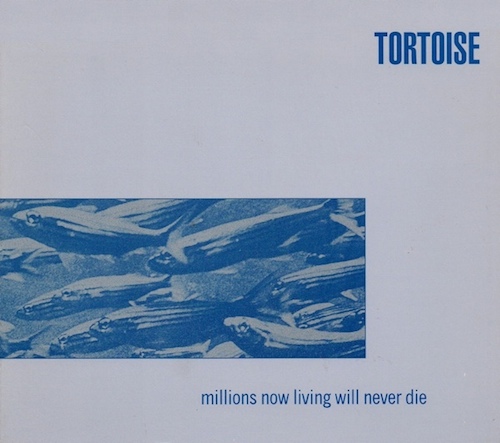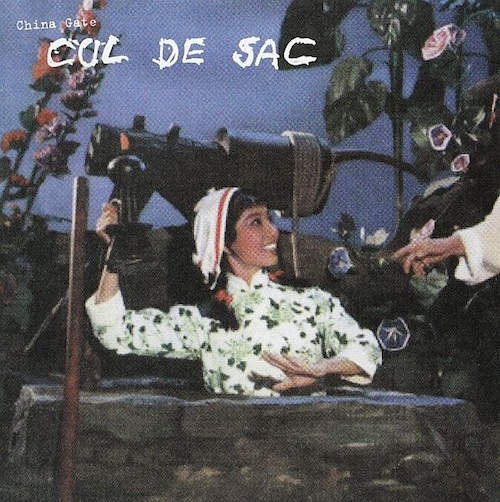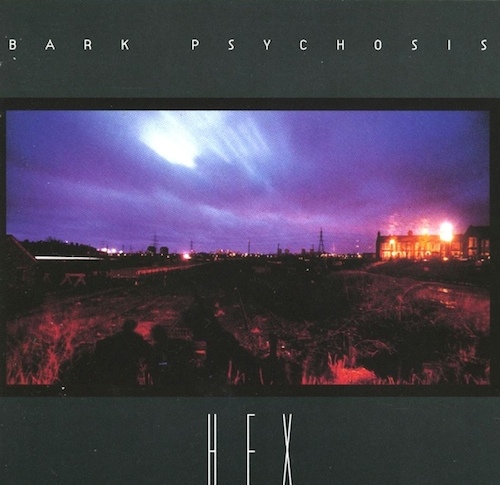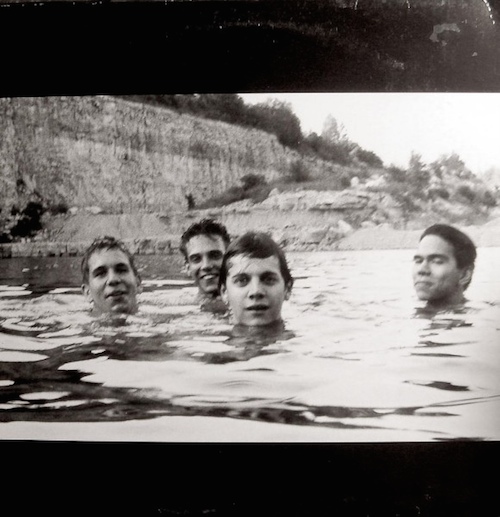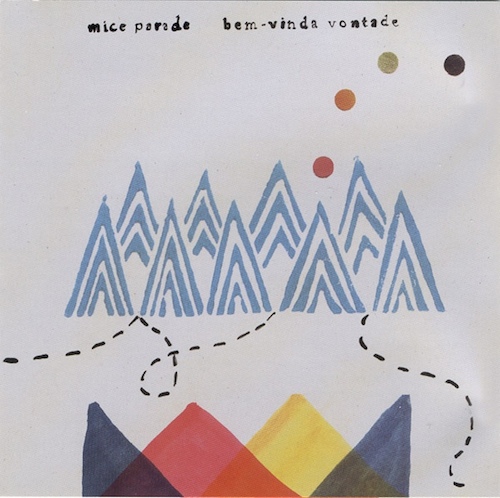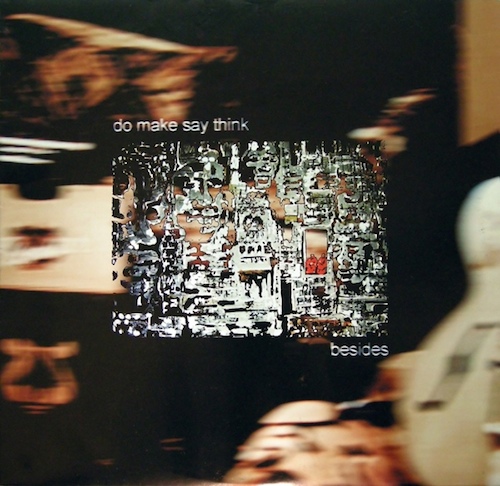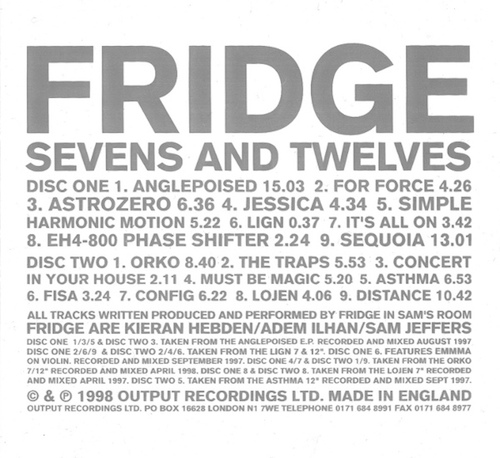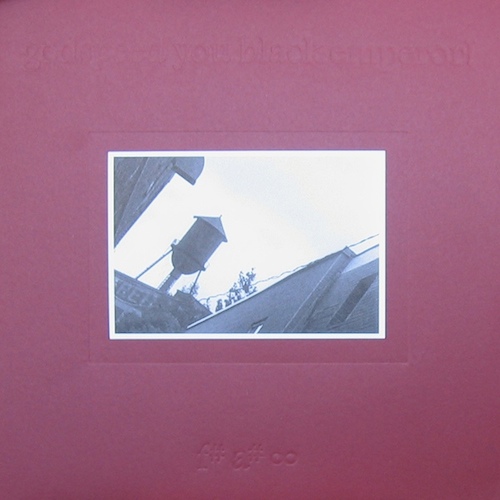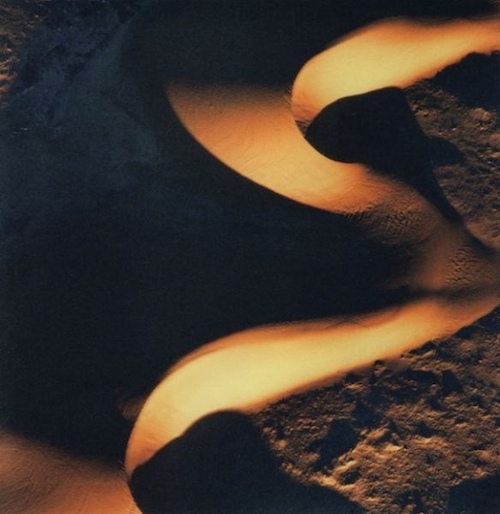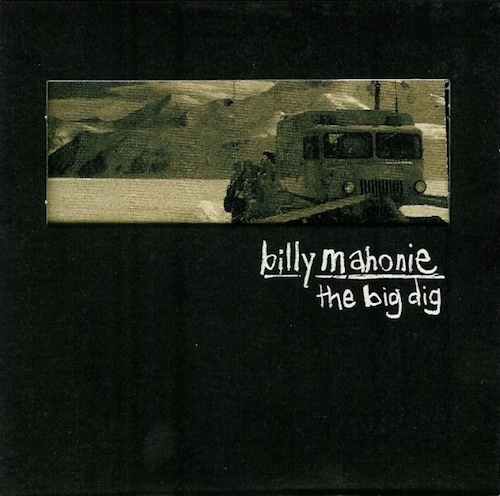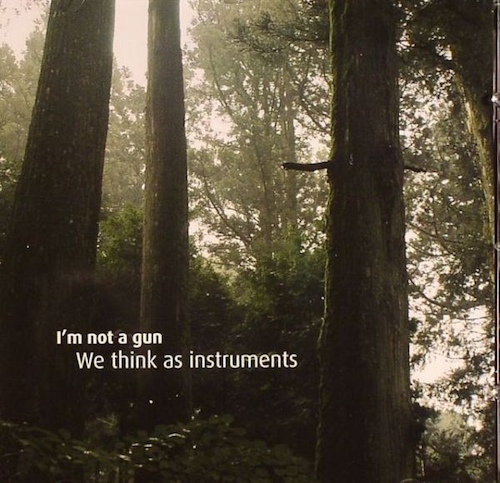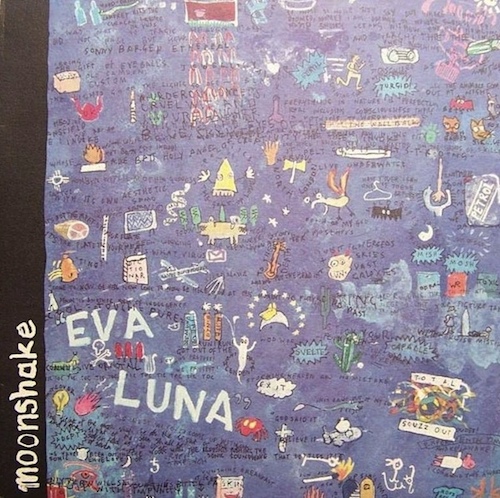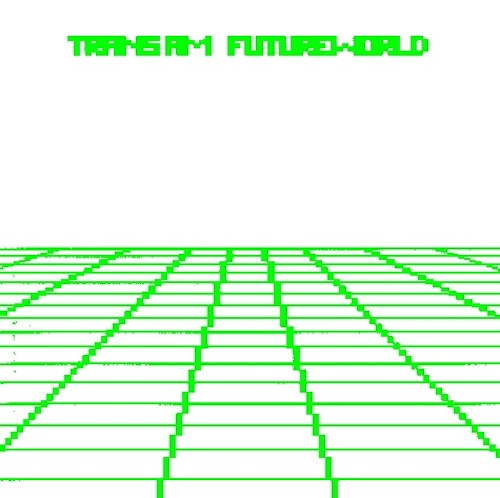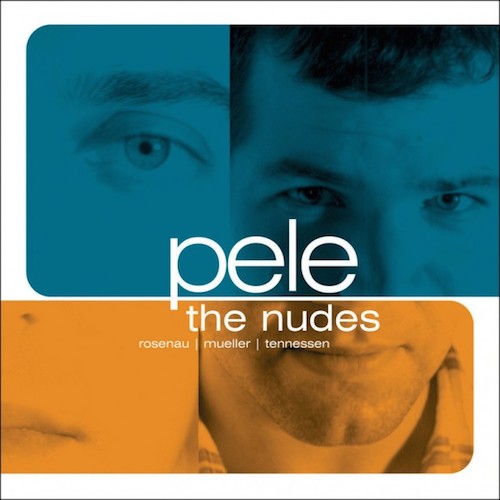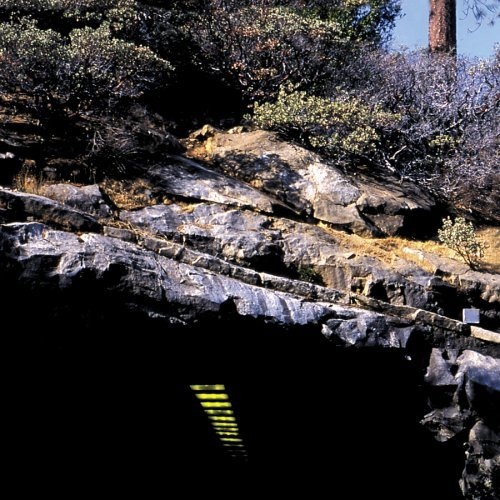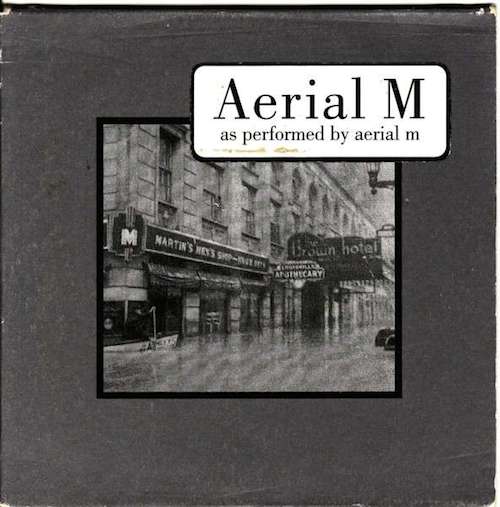Published on
January 13, 2015
Category
Features
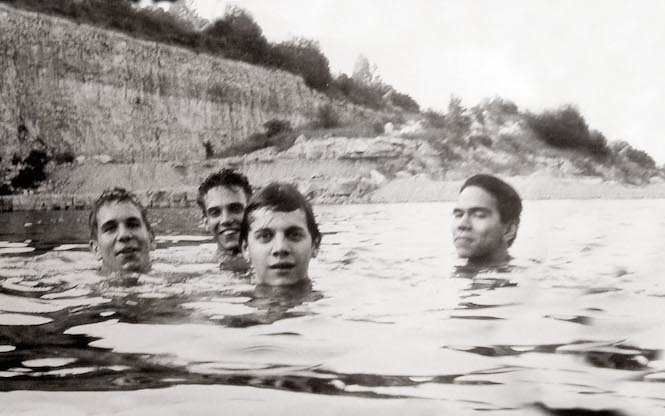

We’ve jumped in our time machine, heading back to 2009, to raid the FACT vaults for Rich Hanscomb’s essential exploration of the best post-rock records ever made.
Words: Rich Hanscomb
As conversation-provoking, scorn-inducing and downright fun as ‘best ofs’ are, they remain pretty irrelevant in terms of genuinely defining who’s ‘the best’.
None could be more slippery than a 20 Best Post-Rock list. After all – what the fuck is Post-Rock? It’s futile attempting to define it. You’re intelligent and love music- that’s why you read FACT and probably won’t need the exact nature of Post-Rock explained to you (still, Wiki-lovers can find a decent stab at it here). As such, this list is necessarily quite a personal one. I love and own all therecords in it. I don’t love or own any records by Explosions in the Sky, Sigur Ros, Battles or much on Constellation Records. I don’t know exactly what Post-Rock is but I know it’s not boring, soulless, pretentious music.
I heard Tortoise’s Millions Now Living Will Never Die album when it came out 1996. It blew my NME-reading 17-year-old brain cell. I got into all the good Chicago stuff (the city, not the band). I dug backwards to the British stuff. I carried on listening – as I do now – to anything that people say, ‘oh, it’s kind of Post-Rock’ about. It opened up my ears to music that wasn’t indie-rock. Here are some important records from that much-maligned genre, or period, or whatever you want to think of it as. There are many more cool albums but I only have space for twenty of them.
01: Tortoise
Millions Now Living Will Never Die
(Thrill Jockey, 1996)
This quiet storm of an album dropped somewhere amidst the musical quagmire that was post-Kurt U.S. rock and peak-reaching-Britpop. To say it stuck out would be something of an understatement. Opener ‘Djed’ is twenty minutes long. A near seamless, wordless stew of kosmische slop that took on krautrock, dub, electronica and indie rock. The album is a high water mark that introduced a generation to new sonic environs and turned the tattooed geeks that created it into Post-Rock’s very own superstars (sort of).
02: Cul De Sac
China Gate
(Flying Nun, 1995)
Perennially underrated Bostonians Cul de Sac might not have the same hip factor as some of their peers but they certainly bring the noise with aplomb. In true krautrock style, China Gate is the edited product of an extended jam/recording session which offers relentless celestial washes of space-rock, surfnik noise and a (typically Post-rock) droll line in song titles; ‘Virgin Among Cannibals’ being one. A stone cold classic from a band that deserves immediate re-appraisal.
03: Pullman
Turnstyles And Junkpiles
(Thrill Jockey, 1998)
Essentially one of Tortoise and some other dudes, sitting round a Chicago loft studio playing DADGAD instrumentals. Prefiguring this decade’s obsession with all things rustic, organic and acoustic by a good couple of years, Pullman’s debut album (ignore their sophomore effort) is quiet wonder personified. Heartbreaking and more cockle-warming than an autumn bonfire.
04: Bark Psychosis
Hex
(Caroline, 1994)
The term ‘Post-Rock’ was coined in the 70s by writer James Wolcott to describe Todd Rundgren’s more esoteric excursions into song. Simon Reynolds employed it – and made it stick – to describe Hex, an album subsequently perceived as the starting point of Post-Rock as a genre. It’s a weighty mantle, but even a cursory blast of Hex will testify as to how well Bark Psychosis carry it. All the ingredients are there- surfsploitation guitar, muted horn refrains and a distinctly cinematic aura. That it features Graham Sutton’s hushed vocals means it’s arguably a curio within this field too.
05: Slint
Spiderland
(Touch And Go, 1991)
A bleakly beautiful, uncompromising slab of Southern Gothic Americana. Oft-imitated by hordes of math-rock dullards and never, ever bettered. Heck, even the band didn’t bother following it up, such is its perfection. Will Oldham’s iconoclastic sleeve design is adorned with the message: “Meant to be played on vinyl”, so fuck Apple Corp.
06: Mice Parade
Bem-Vinda
(Fat Cat, 2005)
What chief, er, Mouse, Adam Pierce, lacks in his ability to emote vocally he more than makes up for in his lush slabs of Tropicália indebted un-rock. Pierce’s history in leftfield music (he’s been part of Dylan Group, run Bubblecore Records amongst other worthy ventures) meant that by the time he’d reached his fifth effort as Mice Parade he was credible enough to poach Mum vocalist Kristin Valtysdótti and more than experienced enough to create this delicate classic.
07: Do Make Say Think
Besides EP
(Resonant, 1999)
DMST have done a sterling job of proving that not everything on Constellation is pretentious, digi-pack-housed, pompous orch-indie – by dint of being transcendentally brilliant. Their career best might well be the melodically serpentine splendour of And Yet And Yet but, we’re all heads here, so let’s plump for the lo-fi and softer-focus delights of this sublime EP on the now sadly defunct Resonant.
08: Fridge
Sevens And The Twelves
(Output, 1998)
Before Kieren Hebden started making background music for Dalston dinner parties and Adam Ilhan became the smuggest bald buffoon to inflict his awful ‘folk’ songs upon the general public, they used to make good music together with another childhood friend as Fridge. Their lo-fi pieces of sound design were naively affecting, the sound of musicians finding their feet and form early on. Fridge’s finest vinyl moments were collected on this double CD by their first label, [Trevor Jackson’s] Output. The sound of young, bored, suburban London on a grey, weekday afternoon. Beautiful.
09: Godspeed You Black Emperor!
F#A#∞
(Constellation, 1997)
With their unwieldy band name, album titles, faceless, inscrutable nature and cumbersome stage presence, GYBE exemplify Post-Rock’s inherent awkwardness and stubborn refusal to play ‘the game’. Whilst F♯A♯∞ (infinity) may be a less politically-charged album than subsequent offerings, it’s nonetheless their most disarmingly awesome: eerie, ebb and flow ambient orch-rock a million miles from any notion of ‘marketing demographics’ and ‘radio edits’. Canonized and for damn good reason.
10: Rachel’s
Selenography
(Quarterstick, 1999)
This Louisville troupe are so hip they’re probably not kicking themselves that the indie cognoscenti one day decided Godspeed… were ground-breaking innovators and pretty much ignored them in the process, despite the fact that they’d been making a melodically sweeter but no less beautifully orchestrated sound for longer than those Canadian upstarts. Rachel’s remain an awesome group – instrumental, string-adorned, experimental rock music that is blissfully free of bombast and completely accessible. Sublime.
11: Jim O’Rourke
Eureka
(Drag City, 1999)
He’ll be back on our radars soon with new album, The Visitor. How ironic that his finest offering so far is an album that rarely pays mind to familiar Post-Rock tropes and remains, for the most part, a song-based affair. But, oh, what songs. Playing out like a wise-ass, East Coast take on Van Dyke Park’s love letter to West Hollywood, Song Cycle, Eureka is everything Post-Rock is meant to be: i.e. not loud/quiet guitar dross, and adorned with sumptuous girly harmonies (there’s
aBacharach cover on there for chrissakes…). See also: Gastr Del Sol’s Camofleur and/or Jim’s stellar, stop-gap EP, Halfway To A Threeway which features minor Post-Rock anthem ‘Not Sport, Martial Art’.
12: Billy Mahonie
The Big Dig
(Too Pure, 1999)
Heck, I remember when this came out it got a massive half-page review in the NME! Ten years is a long time. Often pegged as a poor man’s Mogwai by philistines on account that Billy Mahonie were a British guitar band sans singer, they’re a far more interesting proposition than their Scottish counterparts – folkier, funkier and more rug-cuttable, as exemplified by this fine debut.
13: I’m Not A Gun
We Think As Instruments
(City Centre Offices, 2006)
Informed by the sakura-like delicacy of Nobukazu Takemura’s electronica, John Tejada [yes, that John Tejada] and Takeshi Nishimoto flesh proceedings out with live instrumentation to create lush, head-nodding, flab-free grooves.
14: Moonshake
Eva Lina
(Matador, 1993)
Unlike most Post-Rock, this is sexy music. From humble C86 origins, Dave Callahan’s troupe would soon shake off any attempts to ingratiate themselves in the then emerging shoe-gazing scene and plump instead for something far more modernist. Eva Luna, their debut, pre-figured the kind of exotica-eclecticism /neo-turntablism that certain Chicago collectives would bring to a wider audience.
15: Trans Am
Future World
(Thrill Jockey, 1999)
Trans Am epitomize U.S. Post-Rock’s, er, humorous tendencies, no doubt informed by its partial roots in the dumbest of all guitar rock genres, Hardcore Punk. Future World’s retro-80s, Tron-referencing aesthetic – far removed from the ‘Am’s Van Halen-go-instrumental excursions of yore – was ten years ahead of its time. Perverse to the end, final track ‘Sad and Young’ is an aching slice of droney, guitar-led sad-core the likes of which Explosions in the Sky could never hope to make.
16: Pele
The Nudes
(Polyvinyl, 2000)
Taking the math-rock template and suffusing it with a Tortoise-esque aura of marimba-twinkling melodicism, The Nudes is a low key delight from this understated, jazz-nimble Milwaukee three piece.
17: Flying Saucer Attack
Flying Saucer Attack
(VHF, 1993)
As a glorious antidote to the slick, coffee table/stoner-lite that would later be peddled by other Bristol bands in the 90s, David Pearce’s FSA were a staunchly DIY studio project in awe of the life-giving, organic properties of tape recording. Dabbling in what they described as Rural Psychedelia, this was Post-Rock of a very British kind: damp, sodden, muffled. Simultaneously familiar and otherworldly.
18: Don Caballero
World Class Listening Problem
(Relapse, 2006)
If the comeback wasn’t surprise enough then the quality of the music really was a pleasant smack in the chops. Having spent the 90s twisting Post-Rock into Metal’s academic bastard offspring, Math-Rock, via the Chicago institution that is Touch and Go, Don Cab’s first for Relapse and first album without Ian Williams was an unmitigated guilty pleasure. That Pitchfork and the purists hated it only adds to its charms. Honestly, it’ll stay on your record player longer than What Burns… because, when you’ve got songs and song titles like ‘Palm Trees in the feckin’ Bahamas’, what else do you want from life?
19: Ariel M
Ariel M
(Drag City, 1997)
David Pajo’s credentials were unassailable even as far back as this album. He’s like the Clapton of Post-Rock but, unlike Clapton, Pajo is not a cock (brief spell as Billy Corgan’s ego masseur aside). The sometime Tortoise and Slint guitar hero hasn’t made a particularly good album for a long time now; Ariel M is a gem though. Quiet/loud dynamics? Try quiet/quiet with a ton of soul and fire. As a companion piece to this, check out Ariel M’s Post Global Music album wherein Tied and Tickled Trio and Bundy K Brown do the remix business to appropriately minimalist effect.
20: Telstar Ponies
Voices From The New Music
(Fire, 1996)
With the mock confidence of an Ornette Coleman album title, Telstar Ponies were a challenging – albeit highly rewarding – proposition. VFTNM offered the usual Post-Rock influences but mainlined them with a Glasgow brogue / Velvets cool that set them apart from the image of studious scientists of sound which most Post-Rockers seemingly aspired to. Future Wire scribe Dave Keenan and co were indeed a pleasingly peculiar proposition: Post-Rock Rock Stars.

